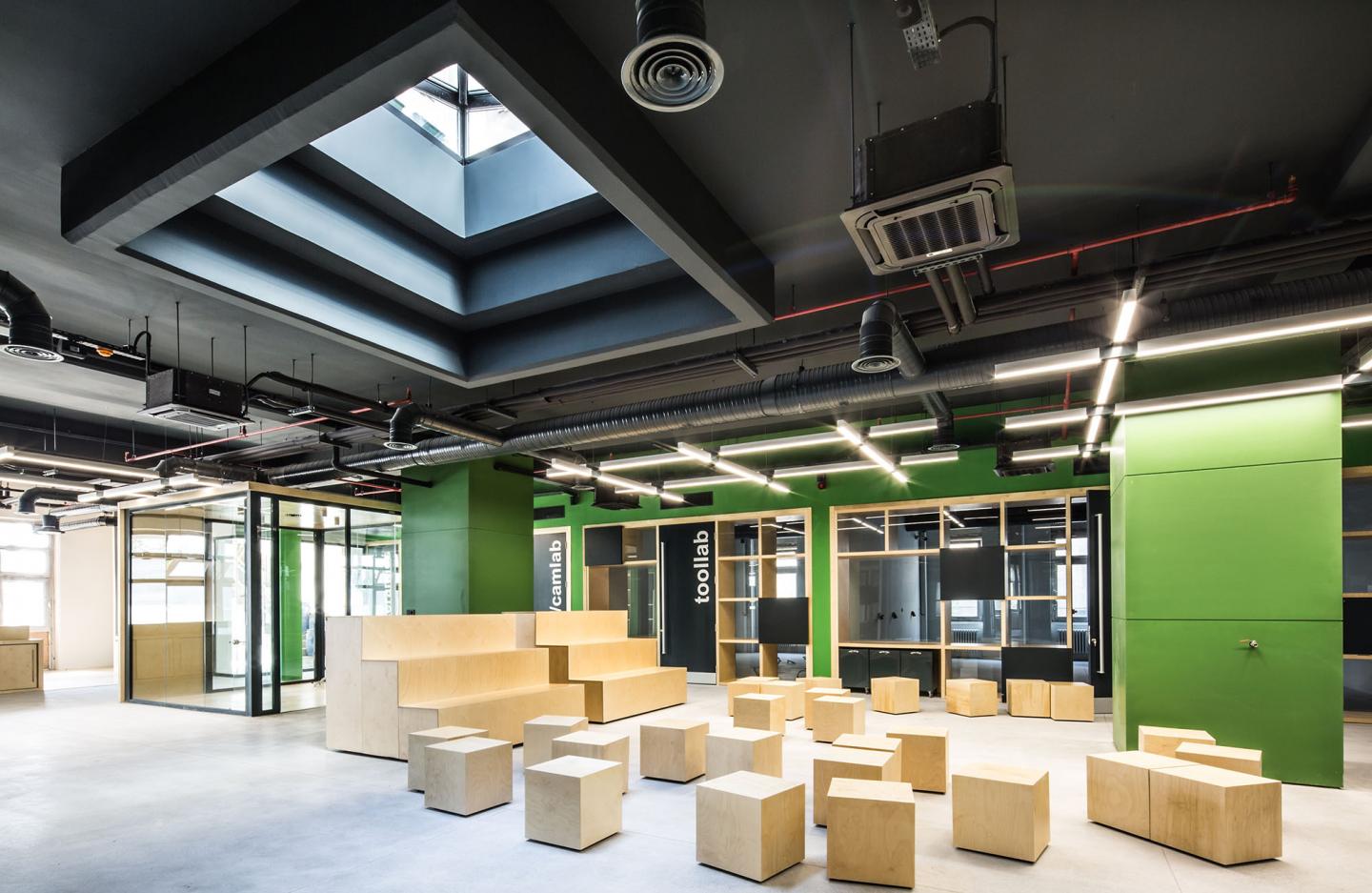The basement workshop space, originally designed to house the furniture production functions for the campus, eventually lost its duty as the in-house production strategies were discontinued by the university, leaving heavy unused equipment and workshops behind. The space had then become zone with a "restricted" feeling, used on certain occasions for limited educational activities (such as summer practices).
The stripping down of the workshop resulted in an unanticipatedly large and unified space that held an enormous potential for collaborated work and social encounters. Motivated by this potential, the design features a central multi-purpose activity hall surrounded by subspaces for production (that are grouped to control air quality and acoustic comfort). In this sense, the design aimed to eliminate a space division that had been based on the hierarchy between users - operators to students - in favor of an inclusive space formation that is developed in consideration of the production process and requirements of the equipment.
The spaces within the FabLab are arranged under four main function groups:
(1) Workshops producing dust (metal, timber, ceramics, CNC, etc.),
(2) Interactive workshops (rapid prototyping, 3d printing, earthquake simulation, photography, gathering & discussion),
(3) MakerLab,
(4) Offices.
The function groups are separated by demountable storage systems, which make it possible for the space to be changed further by students to suit their needs. The design also features mobile stepped seating units that can be organized in different combinations to suit various activities.
Overall, the project aims to boost innovation by enabling new forms of learning environments by steaming participation and collaboration up within and beyond the faculty.
?
2016
2017
Area: 1100m²
Consultants: Beşeli Engineering (Mechanical), RAM Engineering (Electrical)
Onur Özkoç, Heves Beşeli, İrem Senem Büyükkoçak, Öykü Varlı, Hakan Şanlı, Burak Dönmez







